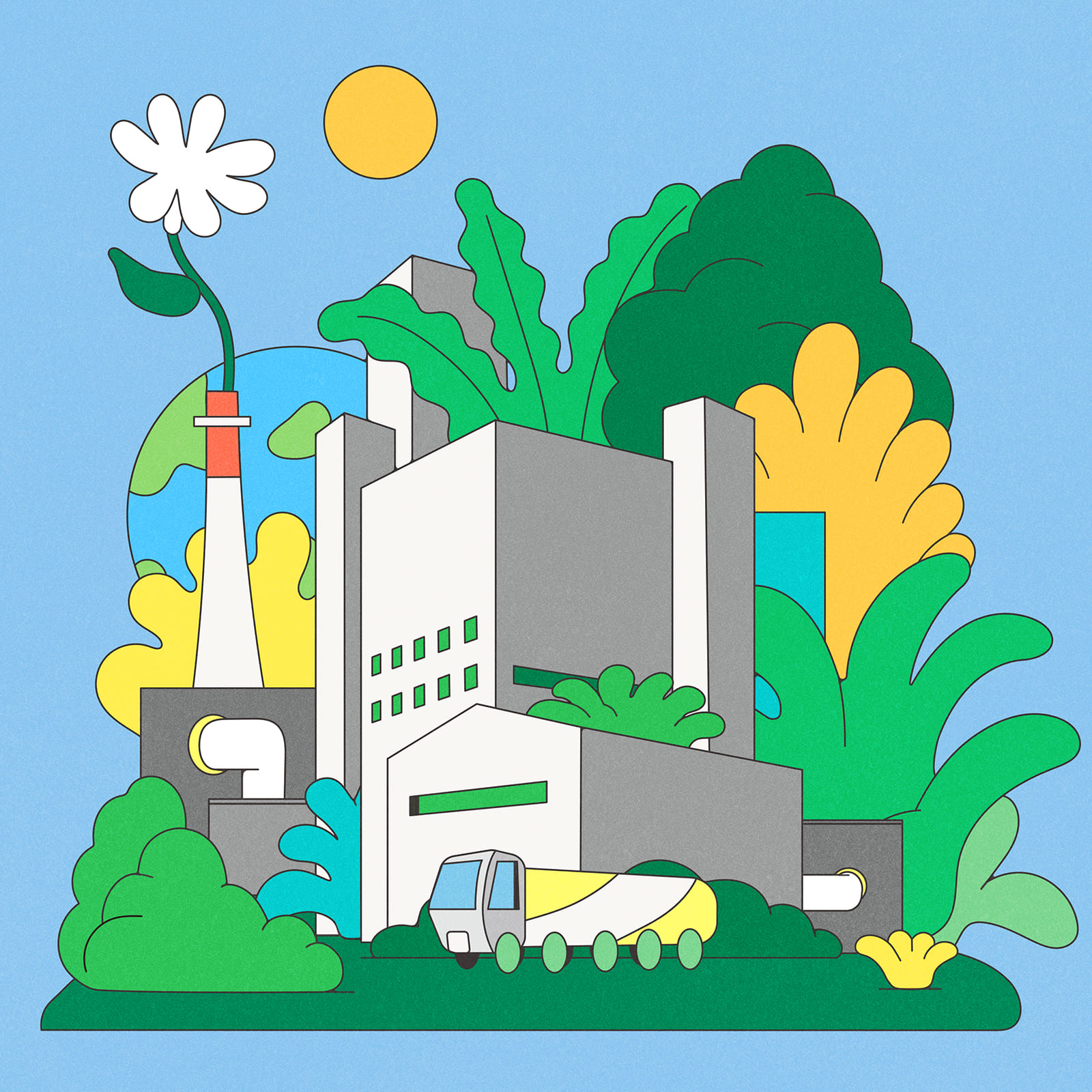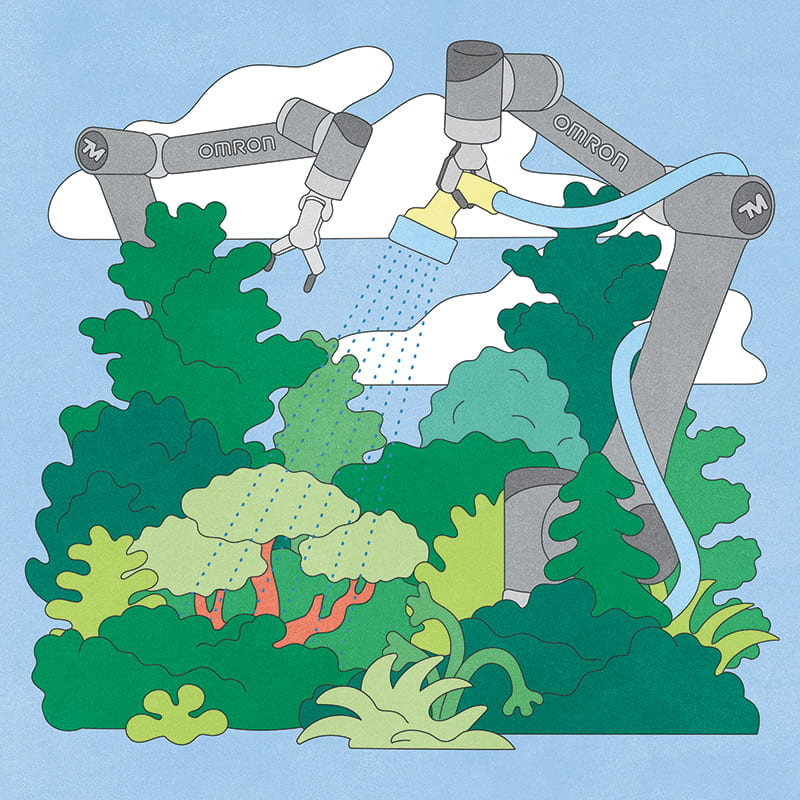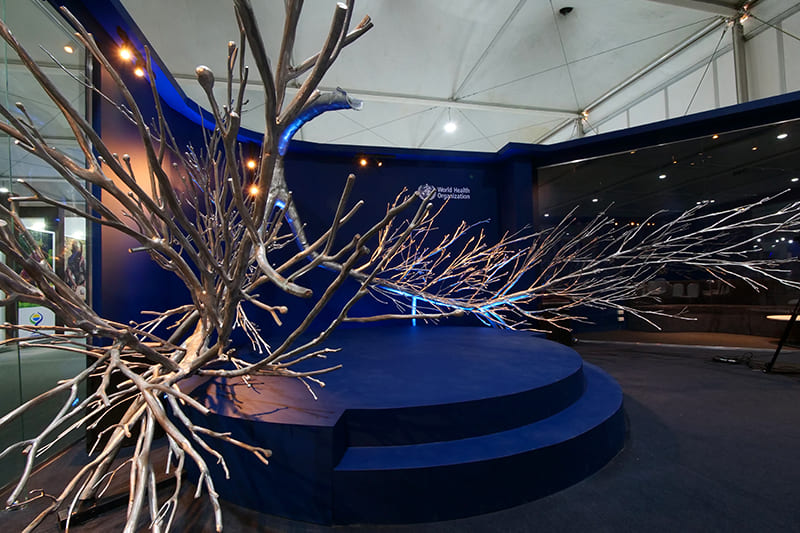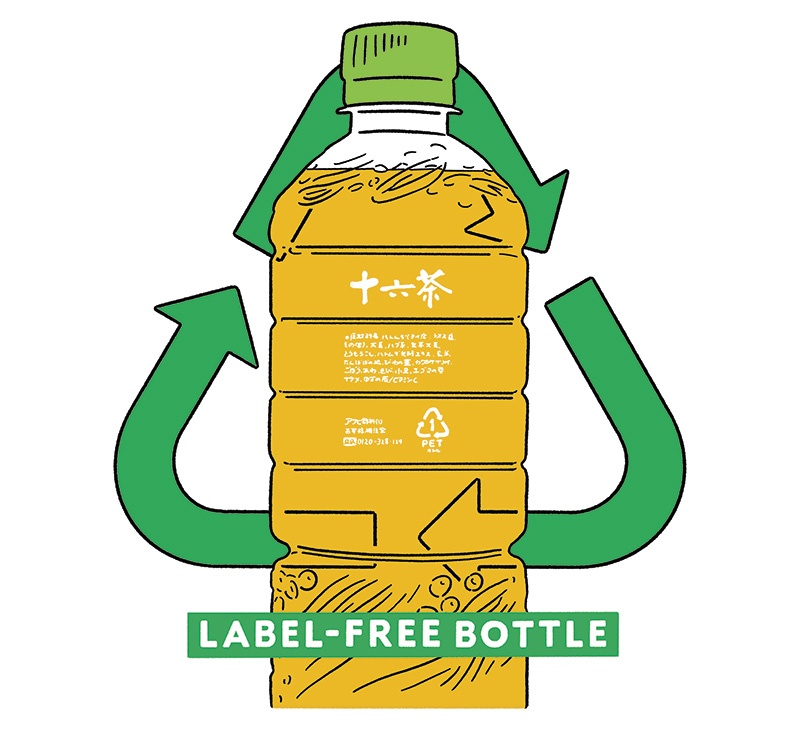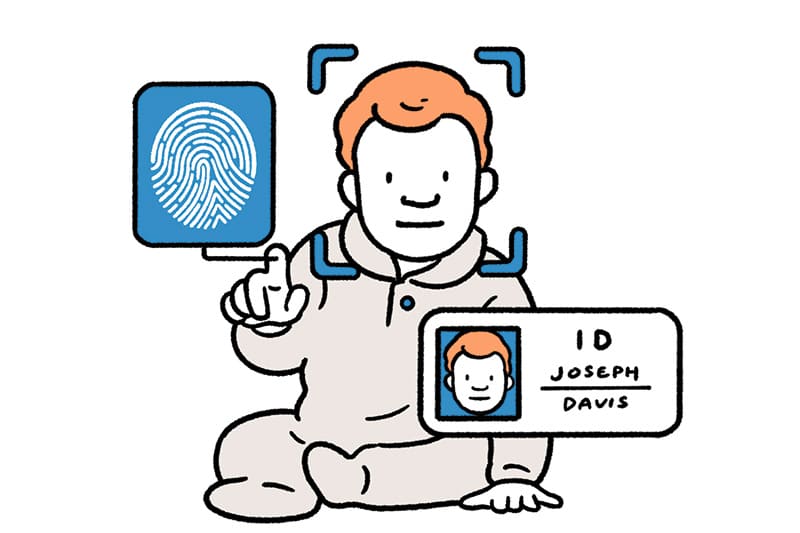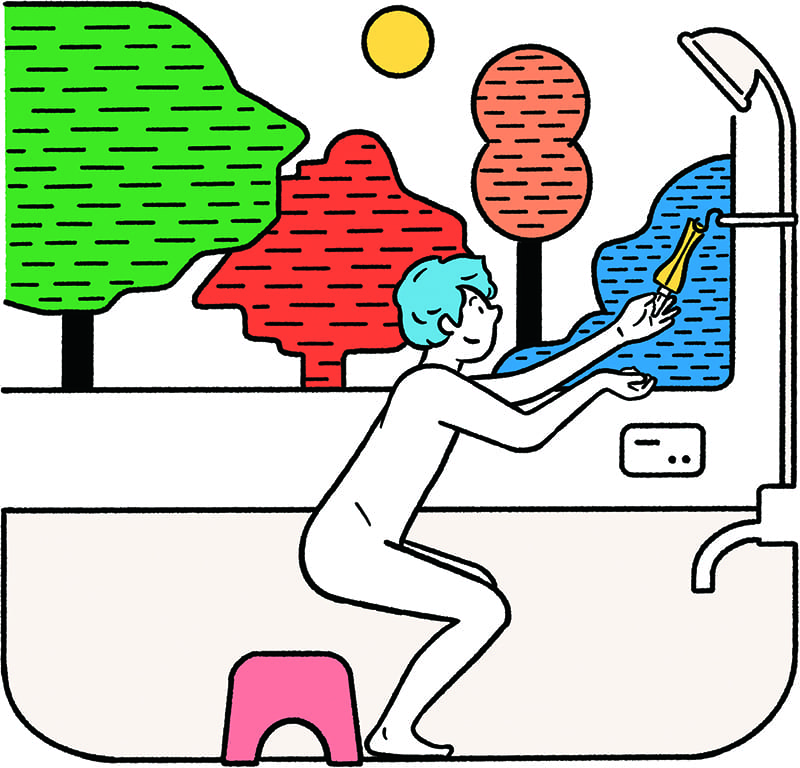August 26, 2022
Eisai resolved to end neglected tropical diseases
Mission: Sustainability VOL. 2: Eisai Corp.
Eisai’s strong points
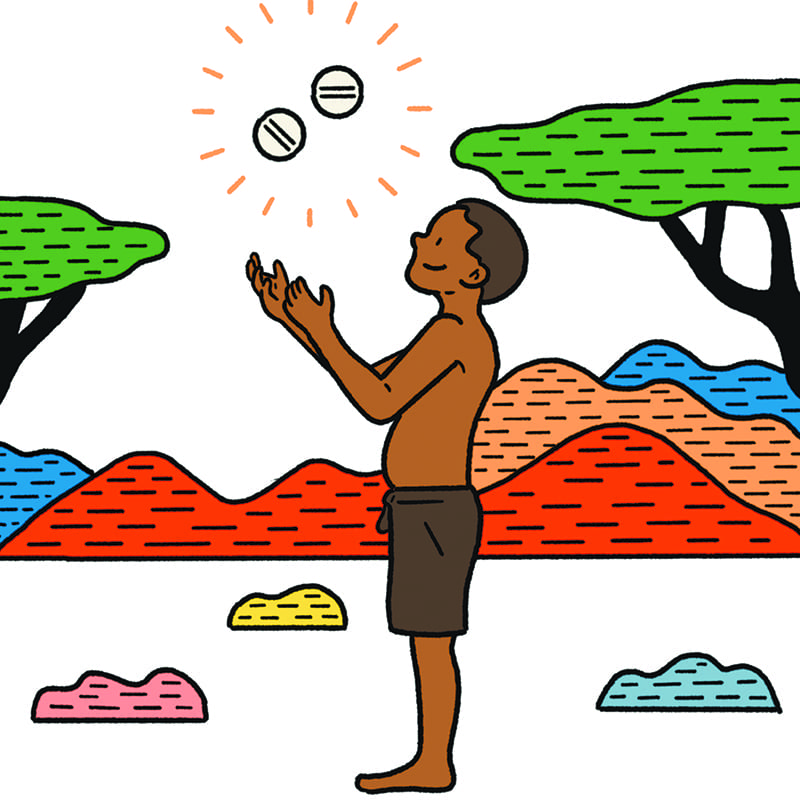
1.Participated in the London Declaration on NTDs and the Kigali Declaration, both of which aim to eradicate neglected tropical diseases
2.Provided 2.05 billion tablets of lymphatic filariasis treatment drugs to 29 countries through the World Health Organization
3.Selected among the world’s 100 most sustainable corporations for the sixth time in 2022, ranking 32nd, the highest position among global pharmaceutical companies
4.Ranked 11th among the world’s pharmaceutical companies for advanced efforts to improve access to medicines in the Access to Medicine Index
On June 23, a battle got underway in Kigali, the capital of Rwanda in East Africa. It was not a civil war, or indeed any kind of armed conflict. It was a battle against what are known as neglected tropical diseases.
NTDs mainly torment poor people in tropical and subtropical regions. The World Health Organization names 20 of them, including dengue fever and Hansen’s disease (leprosy). Some 1.7 billion people are still at risk across the globe, primarily in developing countries.
One of the targets under the United Nations’ sustainable development goals is: “By 2030, end the epidemics of AIDS, tuberculosis, malaria and neglected tropical diseases and combat hepatitis, water-borne diseases and other communicable diseases.”
In June, a summit was held in Kigali on eradicating NTDs and malaria, attended by heads of state including the presidents of Rwanda and Botswana and the prime minister of Jamaica, as well as the United Kingdom’s Prince Charles and Bill & Melinda Gates Foundation co-Chair Melinda French Gates. Governments, international organizations, private-sector support organizations and businesses signed the Kigali Declaration, which calls for spending over $4 billion on controlling the diseases.
The declaration calls for multiple global pharmaceutical companies to donate large amounts of preventive and treatment drugs. Participating from Japan in this endeavor was Eisai Co.
Top sustainable companies
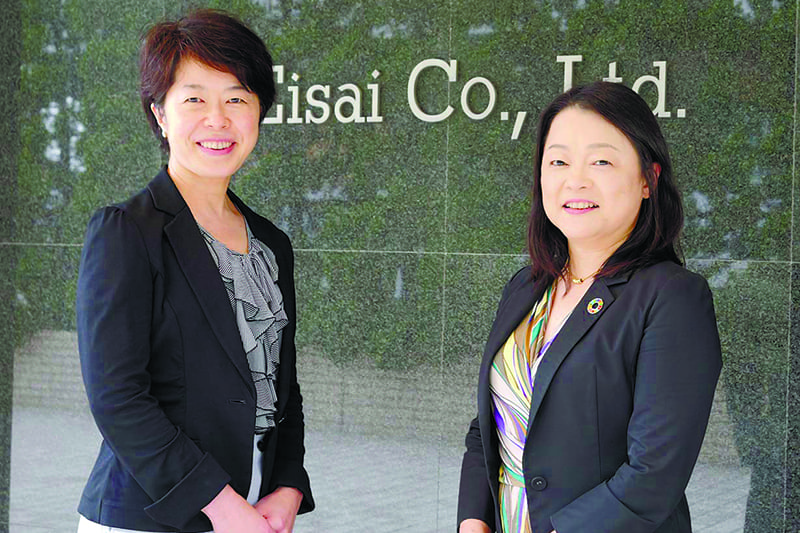
Eisai’s consolidated net sales totaled ¥756.2 billion ($5.7 billion) for the fiscal year that ended in March 2022. The figure places the company sixth among Japan’s pharmaceutical companies, after the top-ranking Takeda Pharmaceutical Co., whose figure reached ¥3.57 trillion, and the third-ranking Astellas Pharma Inc. with ¥1.3 trillion, among others. Yet Eisai has a strong presence in the global arena for the size of its sales. That is because it is well known in the areas of environmental, social and governance (ESG) factors and sustainability.
Eisai’s position as a leading company in sustainability is no doubt directly due to the fact that its main business concerns the sustainability of health care around the world.
Every year, a Canadian investment research company selects the world’s 100 most sustainable corporations from among roughly 7,000 listed companies whose sales total at least $1 billion. In the 2022 ranking, Eisai was one of only three companies from Japan that made the list, and was the only Japanese pharmaceutical company selected.
It was the sixth time Eisai had been selected, and the company ranked 32nd — the highest among global pharmaceutical companies. Eisai practices what it calls affordable pricing, in which drugs are provided according to the economic status of the country or income of the patient. This helped the company earn a high “clean revenue” score.
Eisai’s efforts in developing and emerging countries are recognized in the Access to Medicine Index published by the Netherlands’ Access to Medicine Foundation. Eisai remained in the global top 20 of the index for 2021, placing 11th, the second-highest ranking among Japanese companies, after sixth-ranked Takeda Pharmaceutical.
Eisai also has put efforts into indirect initiatives to contribute to sustainability. For example, it has pledged to make itself carbon neutral by 2040, 10 years ahead of the Japanese government’s goal for making the country carbon neutral, though its target is limited to Scopes 1 and 2 and does not include indirect emissions through its supply chain. Eisai also has ambitious goals in the area of diversity. Still, its most significant contribution is its endeavors to help achieve the sustainable development goal of “Ensure healthy lives and promote well-being for all at all ages.”
Especially noteworthy is its contribution to efforts to control neglected tropical diseases, as noted earlier. In this area, Eisai is now counted on by the WHO.
Lymphatic filariasis
One of the NTDs, lymphatic filariasis, is a disease in which parasitic filarial worms are transmitted by mosquitoes to humans. If not treated early, it can cause legs to swell extremely in a syndrome called elephantiasis, causing difficulties in living. Over 800 million people are estimated to be at risk of contracting the disease mainly in emerging and developing countries, but preventive and treatment drugs have been in short supply globally.
What formed a significant obstacle for efforts to control the disease was one of the three types of drugs for its prevention and treatment, diethylcarbamazine citrate (DEC).
To control the disease, DEC needs to be administered together with another type of tablet annually for at least five years. (In countries where river blindness, another NTD, is widespread, the other two types of drugs are administered due to side effects of DEC.) WHO recently issued guidelines in which it said that, in a country where DEC tablets can be administered, the disease can be contained if all three types are administered together two times.
However, treatment drugs for NTDs are old medicines in advanced nations and thus are not profitable. There are few drugmakers that supply them consistently. In particular, no company was capable of supplying DEC tablets on a global scale until 2010, when Eisai offered to help.
Eisai Chief Executive Officer Haruo Naito was serving as president of the International Federation of Pharmaceutical Manufacturers & Associations, headquartered in Geneva. While repeatedly communicating with the director-general of the WHO, which also is headquartered in Geneva, Naito learned that the WHO wanted to control lymphatic filariasis, but there was an obstacle. Naito promised Eisai would do what it could to help.
“At the time, Eisai had never manufactured DEC tablets,” said Sayoko Sasaki, Eisai’s vice president in charge of ESG-related operations. “And then Naito said: ‘Donation is something that can be done by charitable organizations. What [Eisai] can do best as an R&D company is to stably supply high-quality drugs.’ So we decided to develop and manufacture the drug at a new plant in India, which we were preparing to launch, and provide it for free around the world.”
Over 2 billion tablets
In 2012, the WHO, the U.K. government, the World Bank and major pharmaceutical companies, among others, jointly announced the London Declaration on Neglected Tropical Diseases — one of the largest public-private partnership initiatives in history — to control, eliminate or eradicate 10 NTDs. Eisai, the only Japanese company to participate, pledged to supply 2.2 billion DEC tablets for free by 2020.
DEC tablets for this began shipping from the Indian plant in October 2013. So far, the company has supplied a total of 2.05 billion tablets (equivalent of dosage for about 820 million people), contributing greatly to efforts to control lymphatic filariasis infections in Egypt, Sri Lanka, Thailand and Kiribati.
However, there are still many countries where people are suffering from the disease, and 860 million people are at risk of being infected. This year’s Kigali Declaration, mentioned earlier, picked up where the London Declaration left off. Eisai promised to provide DEC tablets for free to countries that need the drug until lymphatic filariasis is eliminated in them.
It is not hard to imagine this would require strong determination. So far, Eisai has spent about ¥4 billion to provide DEC tablets for free. What is remarkable is that the company started with the development of DEC tablets, from the ground up, obtained the WHO’s approval and then built a system to supply them to key ports in 29 countries.
And its work was not limited to supplying the drug. It provided on-site support for mass administration, installed sanitary water tanks and engaged in educational activities, including preparation of pamphlets in local languages. There are so many different types of support work done by Eisai employees traveling to endemic regions.
The company says it will continue these activities until lymphatic filariasis is eliminated in all of the countries. What drives Eisai to do so much to provide support?
Long-term investment
“On our part, we are doing this, calling it a ‘price zero’ business, because we regard it as a long-term investment to contribute to correcting health disparities, eradicate diseases to help improve labor productivity and support growth of the medium-income bracket,” said Sasaki.
“If we positioned it as volunteer or CSR [corporate social responsibility] work, we wouldn’t be able to maintain it when our financial position deteriorates, which would make it an unsustainable endeavor,” she said.
By contributing to efforts to eliminate diseases, Eisai can boost local people’s trust and its local presence. Eventually, as the economies of the target countries grow, Eisai presumes its business will grow there, including sales of drugs for cancer and dementia, helping the company to recover its investment in the form of profits. Sasaki says there are many other benefits as well.
One is the improved recognition and branding on a global level from working with the WHO and the Bill & Melinda Gates Foundation to contribute to the sustainability of medical care. This in turn can lead to expansion of Eisai’s business in other countries and attract new human resources in other countries. More employees feeling proud of the company means Eisai’s retention of human resources can improve, which in turn reduces costs for hiring. The large-scale production plans for billions of tablets increases plant utilization rates and leads to lower procurement costs for materials.
Still, there is no guarantee Eisai’s efforts can bear such fruits in the future. Also, the correlation between the efforts and the envisioned improvement in efficiency is unclear, giving the impression that it may offer only a weak motivation for the company to continue spending billions of yen going forward. Still, Eisai’s determination does not waver. Eisai advances forward with the belief that what it is doing will no doubt lead to improving its corporate value in the future. What makes it do so is its corporate philosophy.
Eisai, which has stated its corporate philosophy in its articles of incorporations and shared it with shareholders since 2005, added a new line that was approved at the general meeting of shareholders in this past June: “We will efficiently achieve the social good — to relieve people’s anxiety over health and reduce health disparities.”
The statement expresses in simple terms the belief that ESGs and sustainability should go hand in hand with capital efficiency. At the foundation of this belief is Eisai’s corporate philosophy, which it has developed over the past three decades and is symbolized by the catchphrase, “human health care.” (see the interview in the accompanying box).
Eisai adopted what is known today as ESG-oriented management, which states that profits follow if a company is doing what is right. It can be said that Eisai’s history and experience have taken root in the company and brought on this unwavering belief. And that is exactly why the “NTDs-fighting project is a business domain at the heart of our corporate philosophy, led by the hhc concept,” Sasaki said.
In recent years, the company has worked on research to prove the validity of its corporate philosophy. As a result, the belief is becoming a conviction.
The ‘Yanagi model’
Eisai’s price-to-book ratio has been on a par with those of domestic rivals whose net sales or market capitalization are larger, and sometimes exceeds them. In fiscal 2021, Eisai’s ratio rose to above five times those of its rivals. Eisai suspected there was a correlation between the ratio and its ESG efforts, and this hypothesis was proved by what is known as the “Yanagi model.”
Ryohei Yanagi, a former bank employee who joined Eisai in 2003, served as general manager of the corporate finance department until he left to work for a foreign securities company. He returned to Eisai and was appointed to chief financial officer in 2015. Yanagi has also worked as a part-time lecturer and visiting professor at Waseda University’s graduate school, gaining knowledge about academic approaches. He statistically proved that a correlation exists between ESG-related key performance indicators and price-to-book ratio, using multiple regression analysis.
His methodology attracted attention from Harvard Business School and investment management companies, including BlackRock Inc. Yanagi retired as CFO in this past June, saying he wanted to “contribute to improving the corporate value of Japanese companies.” But the DNA of the Yanagi model has been inherited, and the publication of a paper analyzing the impact of DEC tablets is being planned.
Eisai does not stop advancing forward. Currently, the company is working to develop a drug to treat another NTD, mycetoma, which is called one of the most neglected tropical diseases. Methods to reliably diagnose and treat the chronic skin infection have yet to be established. Eisai’s drug is still in the clinical testing phase, but if realized, it will make a significant contribution as a treatment drug. Eisai aims to work with the WHO.
It may take a decade or two, but if neglected tropical diseases are eradicated from the planet, Eisai’s fame will spread.
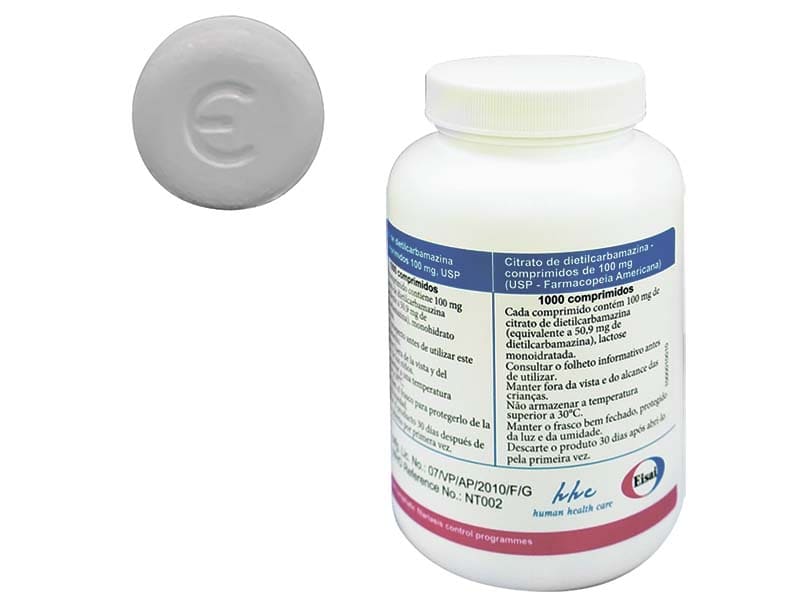
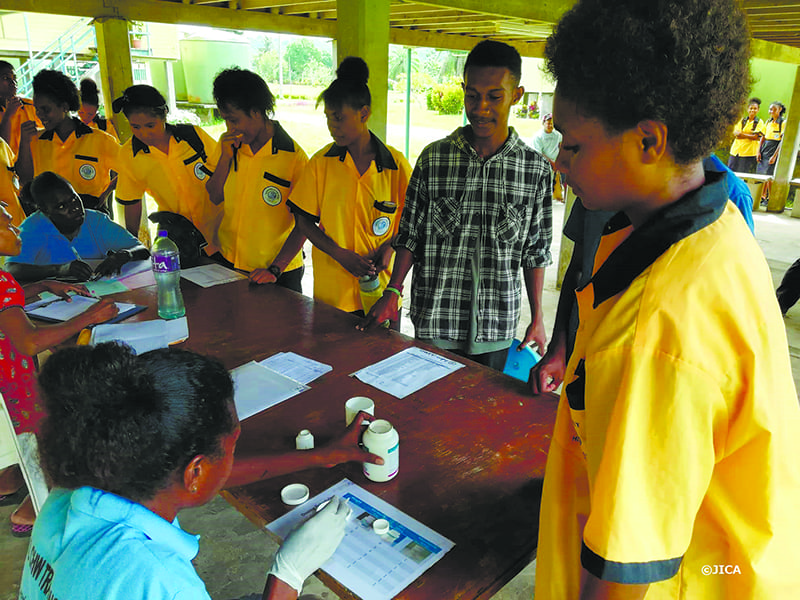
Left: Diethylcarbamazine citrate (DEC) tablets, Eisai’s lymphatic filariasis treatment drug.
Right: Eisai’s treatment and preventive drug for lymphatic filariasis, which the company provides for free of charge, is being mass-administered.
Three decades of pursuing ESG management
Sayoko Sasaki
Corporate officer
Corporate communications and ESG
At Eisai, we believe the value of a company lies in the pursuit of efficiently realizing the social good. This is referred to in our medium-term business plan “EWAY Future & Beyond.”
Now, what is the social good for Eisai? It is to create innovations in products and services that can relieve people’s anxiety over health. At the same time, we aim to help reduce health disparities.
In terms of “efficiently” achieving the social good, we attach importance to finding a broad range of business partners. Partnerships with pharmaceutical companies are important, of course, but to achieve the social good, including reduction in health disparities, it is also important to work with such organizations as the World Health Organization and the Bill & Melinda Gates Foundation.
The word “efficiently” also means that we will squarely consider capital efficiency in proceeding. On the belief that ESG efforts will lead to improvement in corporate value over the medium to long term, we aim to achieve the social good in a sustainable way, with business two to three decades from now firmly in mind.
Eisai’s efforts to eradicate neglected tropical diseases in developing countries, on which it is working with partners around the world, can be thought of as symbolic business activities based on such a thinking.
At the foundation of these strategies and activities is the corporate philosophy we have developed over the past three decades. Haruo Naito, who was appointed as representative director and president in 1988, worked out in 1992 the corporate image and concept of “human health care” for us to aspire to.
Under this concept, all our employees have practiced what we call “socialization,” in which each uses 1% of their business time, or two to three days in a year, to spend time with patients and their families. They have used the knowledge gained from this and the thoughts of patients as the source of innovation in working on business.
The concept was approved by the general meeting of shareholders in 2005 and was included in the articles of incorporation, which state: “The company’s mission is to increase the satisfaction of patients and the people in the daily living domain. … The company believes that revenues and earnings will be generated by first fulfilling this mission. The company places importance on this sequence.”
This reflects a view that anticipates what is known and desired today as “ESG- and sustainability-oriented management.”
Eisai has practiced this since three decades ago, so it is now rooted in each of our global employees as a natural thing. We believe this is the biggest advantage for us to promote ESG-oriented management.
「顧みられない熱帯病」の制圧にかける覚悟と信念。
今年6月23日、東アフリカの内陸国、ルワンダ共和国の首都キガリで、ある“戦い”の火蓋が切られた。デング熱やハンセン病など20の疾患群「顧みられない熱帯病(NTDs)」との戦いである。このNTDsやマラリアの制圧に向けたサミットがキガリで開催され、各国政府や国際機関、民間支援組織、企業などが総額40億ドル以上を拠出することなどが盛り込まれた「キガリ宣言」に署名した。ここに、国内製薬大手のエーザイも参加した。
NTDsの一つである「リンパ系フィラリア症(LF)」は、蚊を媒介としてフィラリアがヒトに感染する寄生虫症。3種類あるLFの予防·治療薬の一つ「ジエチルカルバマジン(DEC)錠」を、エーザイは2013年から29カ国へ延べ20億5000万錠を無償提供してきた。
根底には30年間かけて培ってきた、「ヒューマン·ヘルスケア(hhc)」という言葉に象徴されるエーザイの企業理念がある。ESGを担当する佐々木小夜子執行役は、「NTDs制圧プロジェクトはhhc理念が導く、ど真ん中のビジネスドメイン」と強調する。
Return to Sustainable Japan Magazine Vol. 15 article list page

